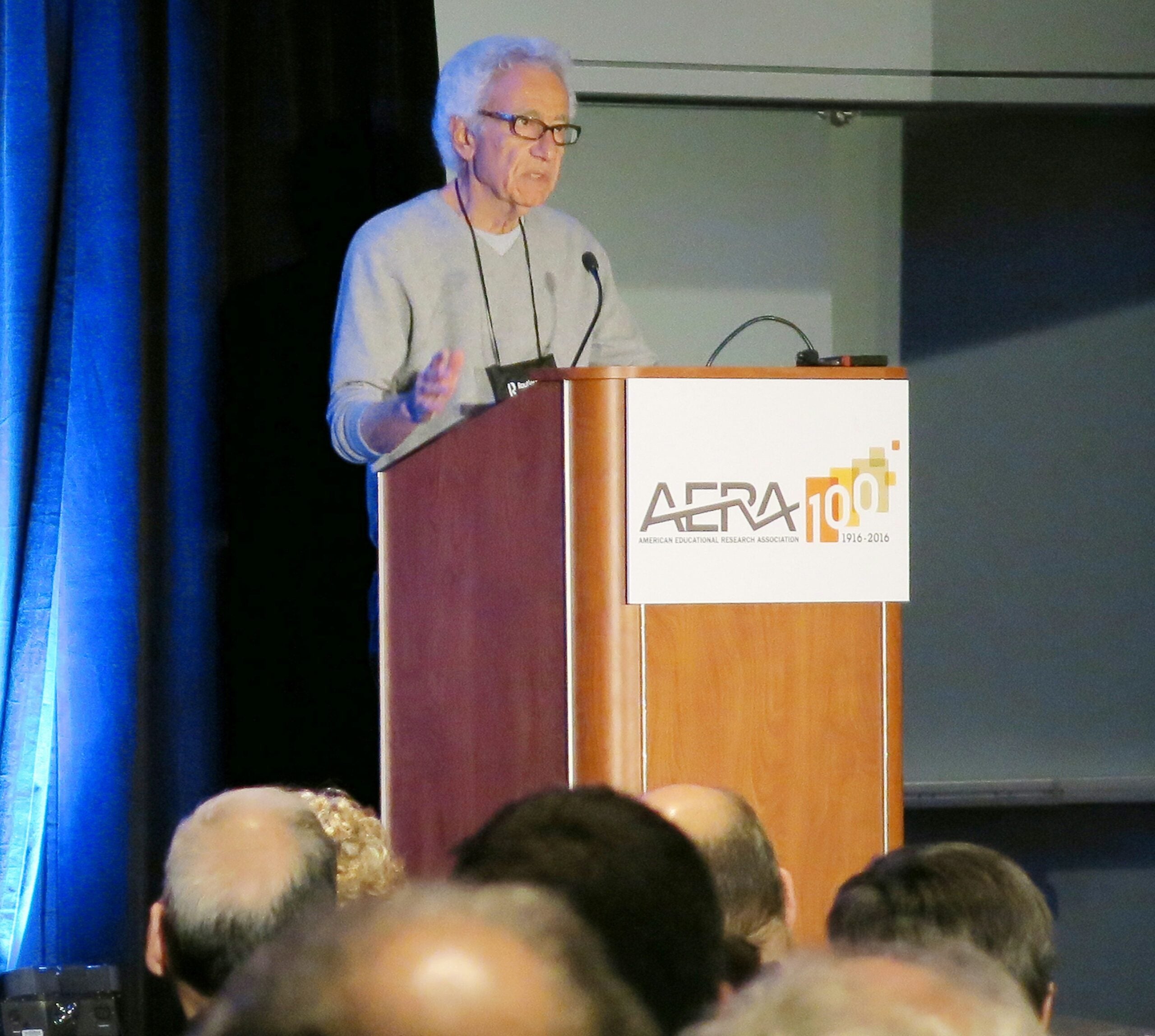At the Annual Meeting of the American Educational Research Association (AERA) in April, UCLA Professor of Education Mike Rose shared his experiences with “Writing Our Way into the Public Sphere” in a Presidential Session. The prolific author of numerous articles, blog posts, and books including “Back to School: Why Everyone Deserves a Second Chance at Education,” “Why School? Reclaiming Education For All of Us,” and “The Mind at Work,” recalled his own experiences with writing as a student, helping UCLA students with their writing as director of the University’s tutoring center, his research on historically underprepared student populations, and the emergence of bringing that academic research to a wider public audience.
Rose described his transition from a creative writer to an academic writer, with the aim of finding “if these distinct ways of rendering human experience could be brought together.”
“I would shift from poetry to prose sketches, which grew in length and dramatic detail,” he recalled. “I would eventually use the kind of analysis I was writing for academic journals but without the academic trappings; analysis of problems students were having with writing, for example, or a discussion of the history of a practice like grammar structure. It was during this experimentation that the desire to write about academic underpreparation for a broader public emerged and took hold. And, I was seeing an aesthetically feasible way to reach that public.”
Soon after Rose discovered his writing “voice” in academia, he published “Lives on the Boundary: A Moving Account of the Struggles and Achievements of America’s Educationally Underprepared” (New York: Penguin Books, 1989). In his talk at AERA, he shared four imperatives that have guided his writing since.
“The first is some moral or ethical imperative – that is, some issue gnaws at me,” Rose said. “It’s an injustice, a bias, a misrepresentation, or a simplification. In the case of “The Mind at Work,” it would be the underestimation of the cognitive demands of everyday work… the class bias involved in that underestimation and the resulting negative judgments about the intelligence of blue collar and service workers.
The second imperative is an intellectual imperative: The issue that I’m wrestling with is complex; it’s multilayered, it presents a challenge to analyze and think through. The third imperative [is] a communicative rhetorical imperative. Somehow, I feel compelled to take this issue into a public forum because it has broad social implications. With ‘The Mind at Work,’ the analysis has implications for education and for job training, and more broadly, for civic life – for the way that we treat each other and try to address our severe cultural divides.
Finally, the fourth and importantly is an aesthetic imperative; that is, finding the genre and the language to execute these other three imperatives and to produce a piece of writing that informs and engages a reader.”
Rose, who writes extensively about the cognitive value of professional experience, particularly in blue-collar fields, urged students and researchers “[not to] segment off your previous lives when coming to the study of education.”
“Something really useful for me happened when I finally brought together my developing poet self with the fledgling academic administrator and researcher,” he said. “It’s not uncommon that people become educational researchers after having done some other kind of work, and typically, that work is teaching. But it can also be anything from carpentry to dance to law. And students who come from these other fields will say, ‘That’s behind me now,’ or ‘That was another life.’
“I say, ‘Don’t do that to yourself and to all that rich experience. Embrace it – use it.’ And then I’ll spend some time with them thinking about carpentry or dance and what their knowledge would add to the way they approach issues of education. Our vocations and avocations contain skills in ways of seeing that can benefit our research and give it a wider reach.”
To view Professor Rose’s AERA lecture click here
